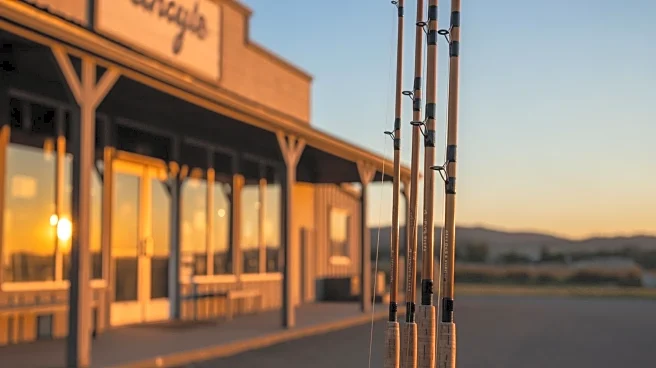What's Happening?
Orvis, a well-known outdoor and sporting goods retailer, has announced plans to close over 31 stores and five outlets by early 2026. The company, which currently operates 70 retail locations nationwide,
attributes these closures to the 'unprecedented tariff landscape' under President Trump's administration. Orvis President Simon Perkins expressed gratitude to the company's associates, acknowledging their contributions to the brand and local communities. The closures will affect several locations, including three in New York, as the company navigates the challenging economic environment.
Why It's Important?
The decision by Orvis to close a significant number of its stores highlights the impact of international trade policies on domestic businesses. The tariffs imposed by President Trump's administration have created financial pressures for companies reliant on imported goods, leading to strategic shifts such as store closures. This development underscores the broader economic challenges faced by the retail sector, particularly those dealing in specialized goods like outdoor and sporting equipment. The closures will not only affect employees and local economies but also signal potential shifts in consumer access to these products.
What's Next?
As Orvis moves forward with its closure plans, the company will likely focus on optimizing its remaining locations and possibly expanding its online presence to mitigate the impact of reduced physical stores. Stakeholders, including employees and local communities, may seek support or alternative employment opportunities as the closures progress. Additionally, other retailers facing similar tariff challenges may reevaluate their operational strategies, potentially leading to further industry-wide adjustments.
Beyond the Headlines
The closures at Orvis may prompt discussions on the long-term sustainability of retail chains in the face of fluctuating trade policies. The situation could lead to increased advocacy for policy changes or support mechanisms to help businesses adapt to international economic pressures. Furthermore, the closures might influence consumer behavior, driving more shoppers to online platforms and altering the landscape of retail shopping.









